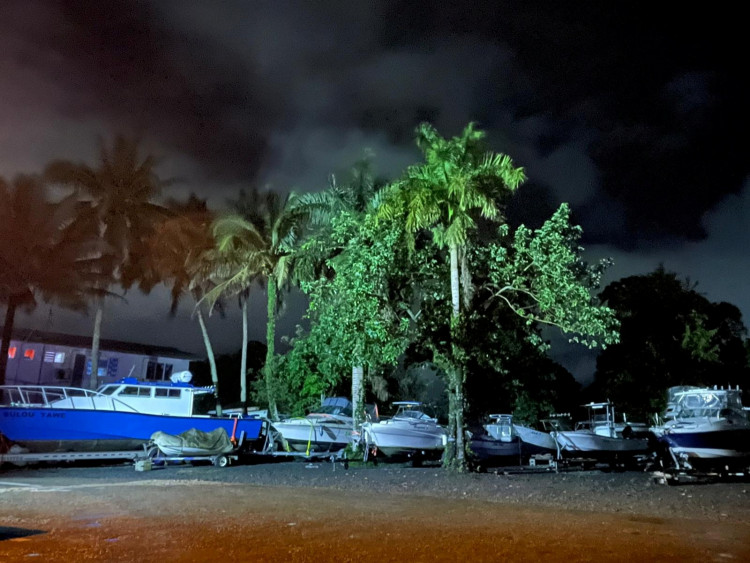Transport and nonessential activities have all halted in Fiji after the government imposed a nationwide curfew to brace for the arrival of category 5 tropical cyclone Yasa.
The storm made landfall in Fiji late Thursday - unleashing powerful winds and flooding large parts of the island.
Prime Minister Frank Bainimarama said in a video posted on social media before the arrival of the storm that people living in low-lying areas should move to higher ground. He said that the "superstorm" is expected to affect all of the Fiji archipelago.
Weather agencies said that the tropical storm could be packing winds of up to 240 kilometers an hour - equivalent to a category 4 hurricane on the Saffir-Simpson Hurricane Scale.
The United States National Oceanic and Atmospheric Administration said that the strength of the storm could bring down houses and buildings. The agency said that even well-built structures could face "severe damage." Power lines and trees will likely be uprooted, the agency said.
Bainimarama said that Cyclone Yasa will easily surpass the strength of Cyclone Winston, which hit the country in 2016. Cyclone Winton was one of the most intense storms to hit the country in recent years. The storm killed more than 40 residents, left thousands of people homeless, and caused billions of dollars of damage.
Weather forecasts for the region anticipate massive flooding in the coastal region and waves of up to 10 meters. About 95% of the population - or roughly 850,000 - are reportedly in the direct path of the storm
Fiji's National Disaster Management Office said that all public transportation will be banned for the duration of the storm. Fiji has already declared a "state of natural disaster," which will give law enforcement increased power during the crisis.
Bainimarama blamed the increasing number of cyclones in the Pacific on global warming. Earlier in the year, he also blamed global warming for the worsening wildfires in Australia.
"My fellow Fijians, as the world is getting warmer these storms are getting stronger. Every one of us must treat these climate-fuelled catastrophes with deadly seriousness," Bainimarama said on Thursday.






